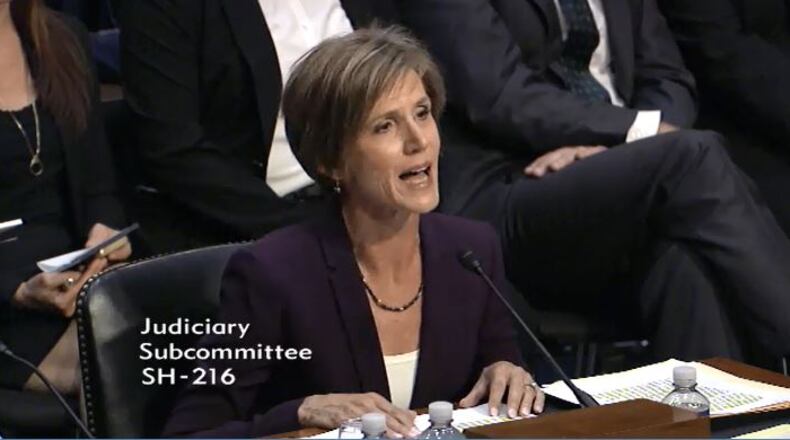Congress delved back into Russian interference in the 2016 U.S. elections, with a former top Justice Department official detailing warnings to the White House that a top aide to President Trump was vulnerable to Russian blackmail, as Senators were told by a former top intelligence official that that European allies had given information to the U.S. on possible contacts between the Trump Campaign and the Russian government.
The central witness of a Senate Judiciary Committee hearing was former Acting Attorney General Sally Yates, who told Senators how she had met twice in two days in January with the top lawyer at the White House, sending the message that ex-National Security Adviser Michael Flynn was "compromised with respect to the Russians."
"We felt like it was critical that we get this information to the White House," Yates said, "in part because the Vice President was unknowingly making false statements to the public."
Yates said it was clear from news reports that Flynn had explained his transition contacts with the Russian ambassador to Vice President Pence in a way that was not backed up by evidence gathered by U.S. Intelligence, and that the Russians obviously knew that as well.
"To state the obvious, you don’t want your national security adviser compromised with the Russians," Yates said.
Both Yates, and former Director of National Intelligence James Clapper denied that they had leaked information about Flynn to the news media, as Republican Senators concentrated more on the issue of leaks, while Democrats zeroed in on Russian efforts to disrupt the 2016 campaign.
At one point, Sen. Diane Feinstein (D-CA) asked Yates and Clapper if it was true that intelligence services of European allies had passed on any information about possible contacts between the Trump Campaign and the Russian government.
"Gen. Clapper, is that accurate?" asked Feinstein.
"Yes it is, and it is also quite sensitive," Clapper replied.
Clapper strongly repeated the conclusions of the U.S. Intelligence Community that the Russians were behind hacks of the Democratic National Committee and more during the campaign.
"The Russians have to be celebrating the success of what they set out to do," Clapper said, saying Moscow had sought to sow 'discord and division' in the U.S. political arena.
"To me, the transcendent issue here is the Russian interference in our election process," Clapped added.
The hearing came hours after a series of leaks and tweets by President Trump, as the current and former administrations dueled in public about Flynn.
"It's true that President Obama made it known that he wasn't a fan of Gen. Flynn's," said White House Press Secretary Sean Spicer, when asked about the warning by Mr. Obama to President-Elect Trump about Flynn.
About the Author
The Latest
Featured



